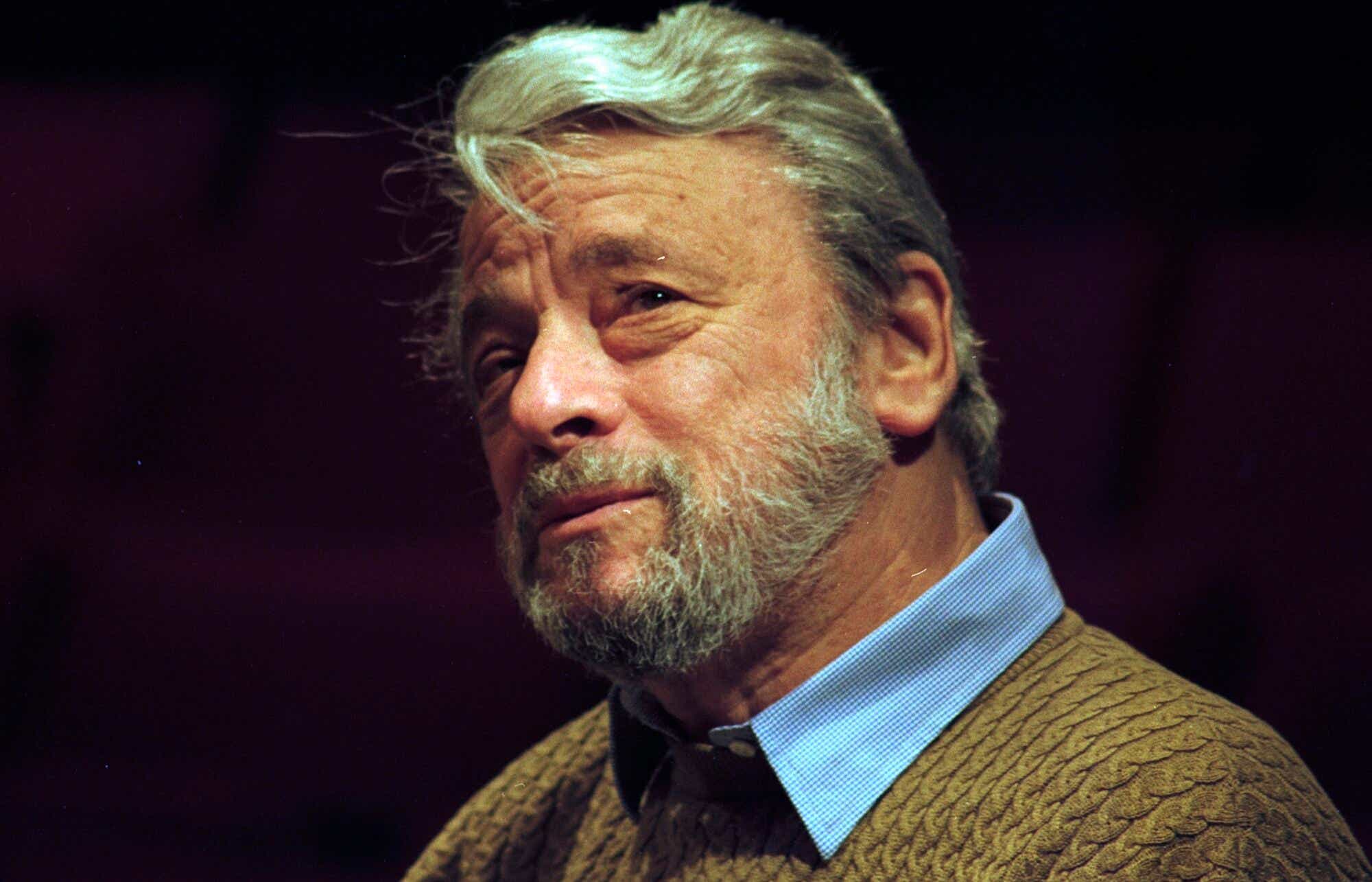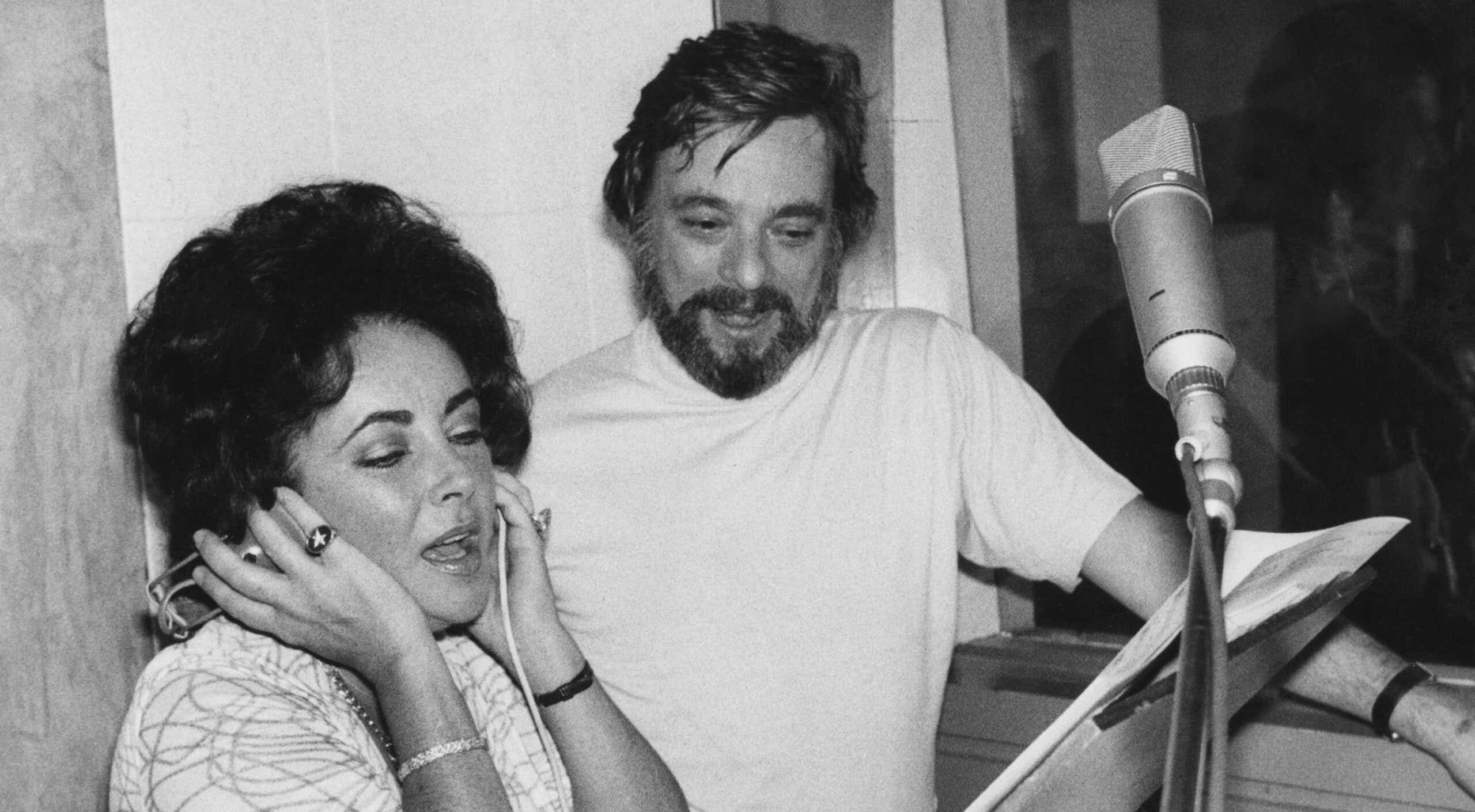Don’t worry about Sondheim not producing many tunes you can hum.
I love musicals, and Stephen Sondheim was the master. He died on Thanksgiving Day, but at 91 was still working on another musical. I’m more of a Rodgers and Hammerstein gal, but my friend Kevin Goldman worshipped Sondheim and his creative genius. Here’s why. — Katie
In late 1990, when I was a reporter at The Wall Street Journal, a friend at The New York Times invited me to attend a show that had been sold out since tickets went on sale: Assassins, a new musical by Stephen Sondheim.
Shortly before the performance began, the small theater was filled, except for two seats directly behind me and my companion. “Too bad,” I thought. “They’re probably stuck in traffic and will be late or miss the performance entirely.”
Suddenly, two men dashed up the aisle and took the empty seats. One was Sondheim himself.
Having covered the television industry for the Journal and other newspapers, I had met my share of celebrities and not one had intimidated me. But this was different.
“Oh, Mr. Sondheim,” I said, whirling around in my seat without a moment’s hesitation. “I cannot tell you how much your music means to me and how many hours of pleasure you’ve given to me.”
“That’s nice,” he replied.
I later learned from those who knew him that I was lucky to be given even that acknowledgment.
No matter. I had spoken to someone I was in awe of since I was a child and first heard the score of West Side Story and Gypsy, two iconic shows for which he reluctantly wrote the lyrics, reluctantly because what he wanted was to be the composer and lyricist. It was only at the urging of his mentor and surrogate father, Oscar Hammerstein II, that Sondheim accepted both assignments.
Sondheim, who died unexpectedly Friday at his home in Roxbury, Conn, at age 91, always, to quote my friend, the legendary New York disk jockey Jonathan Schwartz, “moved the story forward.” He told The New York Times for its The Last Word video series, “That’s one of the things that appeals to me about stories, as if I have never done anything like it before. It has to be some unknown territory. It’s got to make you nervous. If it doesn’t make you nervous, then you’re going to write the same thing you wrote before.”
Playing it safe didn’t suit Sondheim. Examples: An unfulfilled 35-year-old bachelor in Company, telling a story in reverse order of success and unrealized dreams in Merrily We Roll Along, a vengeful murderous barber in Sweeney Todd, a driven artist who locks out all around him in Sunday In The Park With George, misguided and mischievous characters in Into The Woods, demented and sinister murderers (or hopeful killers) in Assassins, a poet who takes refuge from the chaotic outside world in a department store in the underperformed Evening Primrose, originally shown on the anthology television series ABC Stage 67, and two interdependent brothers, Addison and Wilson Mizner in, depending on when you were lucky enough to see it, Road Show, Bounce, Wise Guys, or Gold!

He wrote his first full score, By George, at age 15 and shared it with Hammerstein, who fully expected him to produce the show. Of course, he didn’t, but went through the script line-by-line critiquing it for his young protégé.
His next musical was Saturday Night, which was scheduled to open on Broadway in the 1954-’55 season. But after the producer died, the production was shelved and wasn’t performed until 1997. If you want to hear the first indication of genius—an overused word, but not in Sondheim’s case—listen to What More Do I Need? from that score, specifically the superb version by Dawn Upshaw on her CD, I Wish It So.
I’m not a music or theater critic (I leave that to excellent writers such as Frank Rich, Terry Teachout, and Tim Page, to name a few). But I’m a music enthusiast. I never subscribed to an often-heard criticism of Sondheim’s music: you cannot hum it.
To which I say, “So what?” How could you not be moved by Lee Remick singing the title song of Anyone Can Whistle? Or Mandy Patinkin singing Finishing the Hat, or Patinkin and Bernadette Peters performing Move On from Sunday in the Park…? Or Frank Sinatra’s version of Good Thing Going from Merrily? Or Loving You from Passion? There are so many more.
(I consider it an achievement that my 29-year-old daughter Alex considers Finishing the Hat one of the finest songs ever composed and the night after Sondheim died suggested we watch the PBS broadcast of Sunday in the Park…)
Sondheim didn’t even rest when one of his compositions, Send in the Clowns from A Little Night Music became a surprise hit after Judy Collins recorded it in London. In 1985, Barbra Streisand released a version for her delightful The Broadway Album and Sondheim wrote another lyric to explain the song’s meaning:
What a surprise
Who could foresee?
I’ve come to feel about you what you felt about me
Why only now when I see that you’ve drifted away
What a surprise, what a cliché
We may never see Square One, the working title of a new musical Sondheim was working on based on two films directed by Luis Buñuel. But Sondheim left us with so much. So much to hear…we only have to listen..to concentrate.
At the stirring conclusion of Sunday In The Park with George, a vision of Dot appears and tells George, the great-grandson of George Seurat, “You gave me so much…many things…you taught me about concentration. At first, I thought that meant just being still, but I was to understand it meant so much more.”
So don’t worry about Sondheim not producing many tunes you can hum.
Listen. Concentrate. Enjoy his genius.
Sondheim has finished the hat. A tip of our collective hats to a true genius.
Kevin Goldman is a former media reporter and daily Advertising columnist at The Wall Street Journal and the author of Conflicting Accounts: The Creation and Crash of the Saatchi & Saatchi Advertising Empire (Simon & Schuster). He is currently an Executive Vice President at Edelman, a public relations consulting firm.








